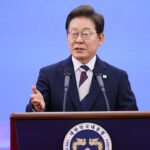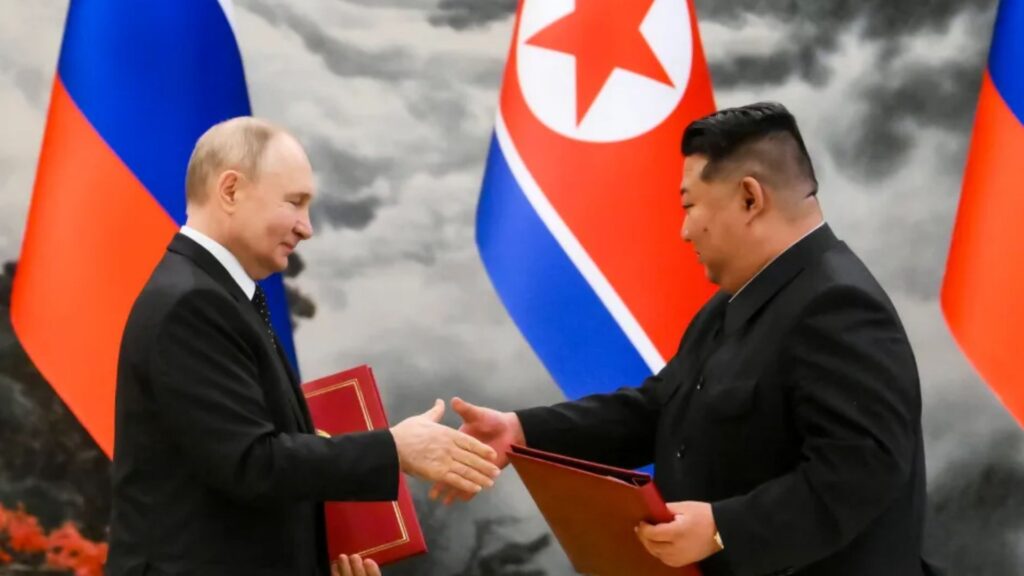North Korea is reportedly preparing to deploy an additional 30,000 troops to bolster Russian forces in the ongoing conflict against Ukraine. This development comes just a day after North Korean leader Kim Jong-un was seen visibly emotional, weeping over the coffins of soldiers who had perished in the war. The move signals a significant escalation in North Korea’s involvement in the conflict, which has already seen an estimated 14,000 North Korean troops, including 3,000 reinforcements, sent to the front lines.
According to a new intelligence assessment from Ukraine, the deployment of these additional troops is expected to occur in the coming months. The report suggests that North Korean forces will join Russian operations in occupied Ukrainian territories, providing support during large-scale offensives. The Russian Ministry of Defence is reportedly prepared to supply the necessary equipment and weapons to integrate North Korean troops into their combat units effectively.
North Korea’s Deepening Military Ties with Russia
The announcement of additional troop deployments follows a series of military and diplomatic engagements between North Korea and Russia. Last year, North Korea’s initial dispatch of combat troops came shortly after Russian Defense Minister Sergei Shoigu visited Pyongyang and signed an agreement with North Korean officials. In exchange for military support, Russia is believed to be providing North Korea with military and economic assistance, raising concerns among Western nations about the potential transfer of sensitive technologies that could enhance North Korea’s nuclear capabilities.
In April, Kim Jong-un publicly acknowledged for the first time that North Korean troops were actively participating in the conflict alongside Russian forces. North Korean state media reported that their soldiers made a significant contribution to Russian efforts to repel Ukrainian forces from the Kursk region.
Emotional Scenes in Pyongyang
In a recent ceremony held in Pyongyang, Kim Jong-un was seen draping North Korean flags over the coffins of fallen soldiers. The event, attended by both North Korean and Russian military personnel, was marked by emotional displays, with Kim visibly moved as he paid tribute to the deceased. The ceremony featured a large orchestra, passionate singing, and images of Kim laying flags over the coffins broadcast on a giant screen.
These scenes underscore the human cost of North Korea’s involvement in the conflict, as reports emerge of North Korean troops being sent on perilous missions, often with little chance of survival. Footage has shown North Korean soldiers engaging in dangerous operations, such as advancing through snowy no-man’s-land, drawing Ukrainian fire.
International Reactions and Concerns
The international community has expressed alarm over North Korea’s increasing military collaboration with Russia. South Korea’s National Intelligence Service (NIS) recently informed lawmakers that North Korea is actively recruiting soldiers for deployment to Russia, with a new wave of 6,000 troops expected as early as July or August.
There are fears that this alliance could lead to the transfer of advanced military technologies from Russia to North Korea, potentially enhancing Pyongyang’s nuclear capabilities. The United States and its allies continue to monitor the situation closely, wary of the broader implications for regional and global security.
Historical Context and Future Implications
Historically, North Korea has maintained a complex relationship with both Russia and China, often leveraging these alliances to counterbalance Western influence. The current military collaboration with Russia represents a continuation of this strategy, as North Korea seeks to assert its relevance on the global stage.
Looking ahead, the deployment of additional North Korean troops to Ukraine could further complicate diplomatic efforts to resolve the conflict. It also raises questions about the sustainability of North Korea’s military commitments, given the country’s limited resources and ongoing economic challenges.
As the situation evolves, the world watches closely to see how this deepening alliance between North Korea and Russia will impact the broader geopolitical landscape and the ongoing conflict in Ukraine.
About The Author
 Rusted Car Discovery May Solve 15-Year-Old Cold Case on Long Island
Rusted Car Discovery May Solve 15-Year-Old Cold Case on Long Island UK Bonds Plummet Amid Political Uncertainty Over Finance Minister
UK Bonds Plummet Amid Political Uncertainty Over Finance Minister AP’s Top Photos of the Day: A Glimpse into Global Events
AP’s Top Photos of the Day: A Glimpse into Global Events Lee Jae-myung’s Diplomacy: A New Chapter for Trump-Kim Relations?
Lee Jae-myung’s Diplomacy: A New Chapter for Trump-Kim Relations? House Republicans Push for Final Vote on Controversial Tax Bill Amidst Internal Tensions
House Republicans Push for Final Vote on Controversial Tax Bill Amidst Internal Tensions